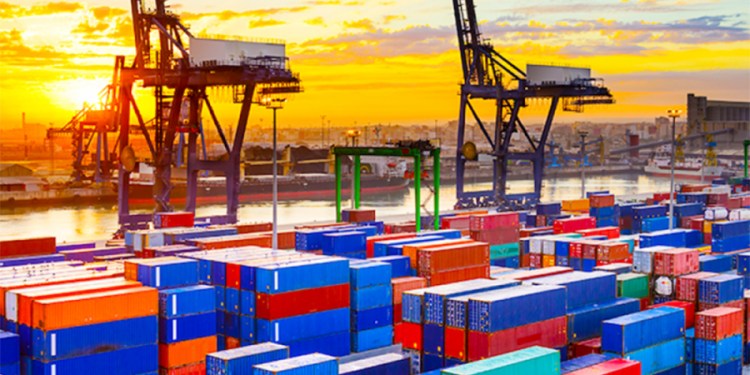AfCFTA: 29 out of 44 ratified members to commence trade after AU’s approval of criteria for 88% tradeable products
A total of 29 African countries are expected to commence physical trading of goods under the African Free Trade Continental Area (AfCFTA) following the approval of the agreed criteria for the 88% tradeable products by the Africa Union (AU).
This is as a result of the verification of the tariff schedules of these countries by the Council of Ministers responsible for Trade under the AfCFTA.
Making this disclosure at a media training on the AfCFTA held by the Ministry of Information and the UNDP, Head of the Ghana AfCFTA National Coordination Office, Dr Fareed Arthur, remarked the verification of countries tariff schedules is necessary for the commencement of trade of goods under the Free Trade Area.
“Out of the 44 countries that have submitted their tariff schedules only 29 of them have been verified. Tariff schedules have to be first verified before we can put it on the system.
“So even now, only 29 countries can trade if the criteria is to be adopted by the Assembly,” he told NorvanReports.
A meeting by the Heads of State at the African Union (AU) Assembly in Addis Ababa, Ethiopia, is expected soon take place.
The approval of the agreed criteria by the AU Assembly will see agreement [agreed criteria] become the basis to commercially start meaningful trade under the AfCFTA.
On January 2, 2022, the Council of Ministers agreed on a criteria to determine the origin of 88 percent of all goods on the tariff books across the African continent.
Technically known as the Rules of Origin, it is the level of value addition to raw materials and semi-finished products that can be accepted as locally produced.
Addressing the media after the eighth meeting of the Council of Ministers of AfCFTA in Accra, the Chairman of the council, Mr Ebrahim Partel, said: “This is a major breakthrough for AfCFTA and this allows us to now confidently say that we have a package of products that we can start trading on.”
“Our eighth meeting was very successful and historic. Over the course of the two-day meeting, we took some ground-breaking decisions which will now be conveyed to the Heads of State at the AU Assembly.
“The most significant of them is that we have bid down key rules of origin that allow us to now state confidently that we have a package of products that we can start trading on,” he said.
“In other words, we have now defined for each of them what constitutes the minimum African content for a product to be traded among countries of the continent on the basis of preferences.
“This is a major breakthrough and I am happy to say that this two-year period of work identified more than 850 additional products for which rules of origin have been agreed,” Mr Partel added.
He also said the council agreed on other matters, including a process to bid down the completion of negotiations on trade and services under the AfCFTA agreement, because, “we want to fast-track those negotiations on services to create large African markets in those areas”.
Read: Ghana’s latest inflation forecast remains above target band
“We cannot continue to produce raw materials for other continents. Our moment of industrialisation is here now and this package will take this initiative forward,” he said.
Mr Partel further said the meeting also adopted reporting modalities on dispute settlement processes, such as “day-to-day challenges that come up in trade relationships among countries and companies”
n his part, the Secretary-General of the AfCFTA Secretariat, Mr Wamkele Mene, said negotiations on the trading of services were at an advanced stage of completion, with 46 member states having submitted their schedules of specific commitments.
He said the Council had directed that the negotiations be concluded by June 30, 2022.
UNDP-Ministry of Information media training on AfCFTA
The United Nations Development Programme (UNDP) in collaboration with the Ministry of Information (MoI) on Monday, January 31, 2022, trained over 30 journalists on the reporting of the African Continental Free Trade Area (AfCFTA) agreement.
The training sought to better reportage on the AfCFTA by the various local media outlets.
Journalists who participated in the training were educated on the following:
• Overall knowledge of the AfCFTA
• Benefits / Impact of AfCFTA to African Businesses and MSMEs
• Registration of companies under the AfCFTA and Associated Players
• Customs role as Competent Authority for AfCFTA implementation
• Building Journalists interest in AfCFTA and trade reporting
• Intellectual Property Rights and taking advantage of the International Market









